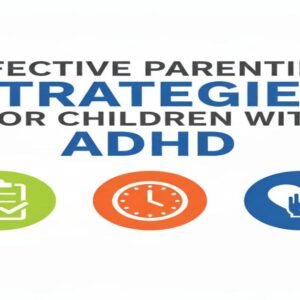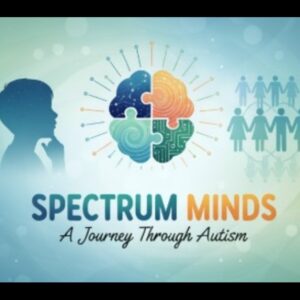Attention-Deficit/Hyperactivity Disorders (ADHD) is one of the commonest neuro-developmental disorders that gets diagnosed in children. Children in the age group affected by ADHD can show occasional signs of hyperactivity or inattention. However, ADHD is characterized by more severe and chronic symptoms that affect the child’s daily life, school performance, and behavioral functioning. In this context,...
Author: child-neurology
Helping Children Coping with Cerebral Palsy: How To Help Your Child
Being diagnosed with CP is the beginning of challenges and difficulties that families and children with CP need to face. However, with the right therapy and home support children can thrive CP. Early therapy and home support, consistent care, and understanding your child and their needs is key and the difference. The best pediatric neurologist...
Effective Parenting Strategies for Children with ADHD
Parenting a child with Attention-Deficit/Hyperactivity Disorder (ADHD) can be both rewarding and challenging. ADHD affects attention span, impulse control, and activity levels, but with the right approach, children can thrive academically and emotionally. Guidance from the best child neurologist in Gurgaon can make all the difference. 🧠 Understanding ADHDADHD is a neurodevelopmental condition marked by...
Understanding Autism Spectrum Disorder (ASD)Autism Spectrum Disorder (ASD) is a developmental condition that affects how a child communicates, behaves, and interacts with the world. The condition varies from mild to severe, which is why it’s called a “spectrum.” For accurate diagnosis and management, consulting the best child neurologist in Gurgaon is essential.
🌈 What Is Autism Spectrum Disorder?ASD is a neurodevelopmental disorder that impacts brain development, leading to differences in communication, learning, and behavior. Some children may need lifelong support, while others live independently and excel in academics or creative fields.Parents looking for expert guidance can consult Dr. R.K. Jain, widely regarded as one of the best...
Autism & ADHD Care – Early Support for Brighter Futures
Every child develops in their own unique way. While some may face challenges in communication, focus, or behavior, this does not mean they cannot thrive. Two common neurodevelopmental conditions that affect children are Autism Spectrum Disorder (ASD) and Attention-Deficit/Hyperactivity Disorder (ADHD). Early recognition and intervention can make a world of difference in their growth, learning,...
Seizures in Children: What Parents Should Know
Watching a child experience a seizure can be one of the most frightening moments for any parent. While seizures are not always a sign of epilepsy, they do require medical attention and awareness. Understanding seizures, their causes, and how to respond can help parents provide immediate support and seek the right care. What is a...
Dyspraxia in Children: Why Everyday Tasks Feel So Hard
For most children, skills like tying shoelaces, writing neatly, or catching a ball improve with practice. But for some kids, these everyday tasks remain frustratingly hard, no matter how much effort they put in. This isn’t laziness or lack of intelligence — it could be Dyspraxia, also known as Developmental Coordination Disorder (DCD). Understanding dyspraxia...
ADHD or Just High Energy? Key Differences Every Parent Should Know
Every parent has seen their child bouncing with endless energy — running, jumping, and talking nonstop. But when does this high energy become a sign of something more serious, like Attention-Deficit/Hyperactivity Disorder (ADHD)? Understanding the difference matters. Early recognition of ADHD helps children receive the right support for learning, emotions, and overall development. If you’re...
How to Find Out If Your Child Has ADHD?
By child-neurology | In ADHD ADHD, or Attention Deficit Hyperactivity Disorder, is a neurological condition that affects a child’s ability to focus, control impulses, and manage their energy levels. While it can impact people of all ages, ADHD is often first noticed in early childhood and, if left unaddressed, can affect academic performance, social interactions,...
What Triggers Seizures in Children?
By child-neurology | In Child Health Seizures in children can be alarming for parents, especially when they occur unexpectedly. However, understanding the underlying causes can help you identify potential risks and seek appropriate treatment quickly. Seizures are often the result of electrical disturbances in the brain, but they can be triggered by a variety of...











